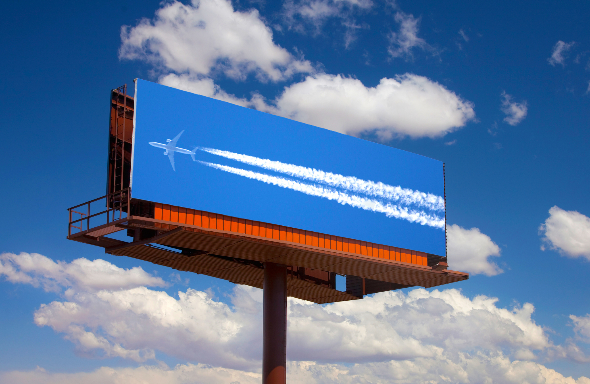
Domestic tourism recovery post-Coronavirus
While large-scale travel will be one of the last facets of normal society to recover from the 2020 Coronavirus pandemic, domestic tourism will be the first signs of it. With lockdown and social distancing restrictions easing across the globe, domestic tourism is set to play a vital role in the rebuilding of economies and act as an indicator for the health and security of nations.
However, the surge will happen at different rates across the globe, so domestic tourism will recover erratically. Some countries may kick their economy quickly back into gear, while others will struggle for a longer period of time.
What’s most likely is the idea that the attitudes, motivations, and preferences of tourists will have changed for the foreseeable future, perhaps forever.
For those property owners coming through the restrictions, the plan is simple; capture as much domestic business as possible, however they can. Some nations such as Australia and New Zealand, which have fought the virus quite successfully, could bounce back significantly with many travellers dreaming of trips while in lockdown. In fact, neighbouring nations are looking at coming to travel agreements, allowing travellers to move freely.
This blog will help you understand domestic travel, and the strategies you can utilise to increase domestic reservations in a world trying to return to ‘normal’.
What is domestic travel?
Domestic travel is characterised by a trip where departure and arrival take place in the same country. This can include any category of travel, such as leisure or business, or even medical.
Domestic travel can also be undertaken via any mode of transport, again as long as the trip begins and ends in the same country.
Hoteliers will obviously be interested in overnight trips, but domestic travel does not have to include an overnight stay.
Domestic tourism definition
Domestic tourism is much the same as domestic travel, except it takes into account only those who are travelling for leisure. Think of sight-seers, day-trippers, families, romantic partners etc.
This will be an important market for most properties as they recover from COVID-19. Countries that have had traditionally strong volumes of domestic tourism, such as the USA, France and Germany, will have to rely on it more than ever to get back on their feet.
What is local or regional travel?
Local/regional travel can be interpreted in two different ways.
One is to talk about people exploring their own ‘backyards’, seeing places close to their home city and connecting to their own local culture. This form of travel is akin to a ‘staycation’.
Another way is to define it by the act of travellers connecting authentically with the local culture of the destination they are visiting. This applies to guests who want to ‘live like a local’ while they are holidaying.
What is interstate travel?
Interstate travel refers to when a traveller starts their trip in one state and arrives at their destination in another, crossing state borders. Just as with any domestic travel, their trip may be for any reason. The type of trip an interstate traveller takes will dictate how long they might stay at your accommodation.
Families are likely to stay for a week or more, while a business traveller is less predictable. They could be in and out within one day, or spend an extended amount of time depending on their purpose.
Domestic travel for small accommodation providers: What does it mean in the COVID-19 era?
Domestic travel is the lifeline the hospitality industry is hanging its hopes on for the foreseeable future. Regardless of how successful a fight against COVID-19 is, international travel is unlikely to return to pre-pandemic levels for some time. If small businesses are to survive, bookings and revenue will have to be sourced from the domestic market in the short-term.
There are a number of questions to which the answers are still unfolding:
- How motivated will people be to travel even once restrictions are lifted?
- How financially able will people be to travel after such hardship?
- What new expectations and preferences will travellers have?
- What types of trips and travellers should hotels be targeting?
- How should B&Bs and other accommodations approach domestic travel marketing?
Solutions lay in being informed and using the right tools to empower yourself to act the right way, at the right time.
As stated, the situation will change from country to country. Governments are handing out various forms of aid, restrictions are fluctuating, and traveller sentiments are highly impacted by the health status of their nation. There is one consistency though; however close to recovery a certain market is, hosts need to be ready and they can all prepare in a similar way.
It’s vital that boutique properties:
- Get control over their costs and finances
- Gain insight into their local market trends and forecasts
- Evaluate their historical sales and marketing strategies
- Seek data on domestic travellers
- Form new strategies appropriate for the current climate.
You’ll have to be creative and flexible with your offerings for those who are travelling. Success could come down to how you package an experience for guests who have been under lockdown and great stress prior to taking a trip.
With price and safety concerns around flights, expect to see a lot of alternate travel methods, and by extension alternate trip types such as roadtrips, in the future.
How to attract domestic travellers to your property: Travel considerations for COVID-19
Planning, skill, and luck will all play a part in attracting domestic guests when they venture out to travel again after COVID-19.
The reason luck is mentioned is because location and experience will be a huge factor for some travellers.
Many may be seeking wellness packages and spiritual refreshment after an unprecedented period of unsettlement in their life. Most properties that can offer this are outside of major cities, in rural locations, but urban properties should consider the opportunities they have to offer this type of experience – perhaps in the form of extended yoga or meditation sessions or similar wellness activities.
Other travellers will have revenge on their mind – they’ll travel aggressively to have as much fun as they can, catching up on the time and experiences they lost while in social isolation.
Yet another group will be those who were hit hard by the virus and will be extremely budget conscious when they travel.
Owners and managers need to look very closely at what travellers might be coming to their area, what these travellers are looking for, and what services the business can provide.
Take into account:
- New requirements on cleanliness and hygiene
Travellers will naturally be health conscious when they travel in the immediate future so you need to make assurances your business is undertaking best practice in this area. - New approaches to shared spaces (lobby, bar, restaurant, pool etc)
Overcrowding should be avoided at all costs as many guests will be concerned about this. Again, assurances will need to be made that you have this under control. - Desire for contactless check-in, room entry, room service etc
These are requests that travellers have been leaning towards for some time prior to the pandemic, but will become much more of a demand now. Not only will it save the guest time and inconvenience, it will now make them feel safer. - Increased demand for wellness services and amenities
The psychological effects of a global event like this shouldn’t be understated. Travellers will be looking for body and soul restoration, to feel healthy, clean, and normal again. Many will be eager to escape the surroundings they have just spent in lockdown to find calmer experiences. - Surge in adventure/active holidays
Being cooped up for weeks and months on end will have travellers craving adventure, exploration, and fun new experiences. Look at what packages you can offer for this group. It’s the perfect time to connect with local companies to broaden your offering. - Concerns around local health facilities
Even when all the restrictions have dissipated, the fear won’t. Guests will be making sure local health services are close to where they are staying and are reliable, to ensure the safety of themselves, family, friends, and colleagues. - Slowdown of business travel
With remote working taking centre stage during the pandemic lockdown, the volume of business travel may be limited for some time to come. For many sectors, working virtually will save money and increase the safety of workers. In saying that, it’s still prudent to prepare for incoming corporate business if this is a market that’s traditionally been applicable to you.
If you think about domestic leisure travellers and the guests you’ve housed in the past, you’ll find many of their preferences will be similar, but amplified.
Traditionally leisure travellers are:
Price savvy
In general, the leisure traveller wants the best deal for their stay. Families in particular will want value for their money. In the wake of Coronavirus this will be even more important. They’ll want their money to go as far as possible and also be close by to everything they’ve been missing out on, such as your amenities, restaurants, and local attractions.
Review sensitive
Reviews about your property may start to take a different shape in this changed world. Potential guests will be on the lookout for comments on cleanliness of the property, hygiene practices, and the health standards of staff. With rigid hygiene proving to be effective in reducing risk of infection, guests won’t want to take any risks.
Package hungry
Leisure travellers are always looking for ways to enhance their experience and packages are an easy way to get valuable add-ons. What will appeal to them after Coronavirus? Perhaps look at whether you can offer private dining experiences, time slots for exclusive use of amenities, upgrades to automate services such as room service, or more frequent housekeeping.
Facilities users
Pools, evening entertainment and kids clubs for those travelling with children will be more appealing to the leisure traveller. With some concern around public places likely to remain, travellers will be keen to enjoy as much as they can on their trip, especially people travelling with children or the elderly.
To be successful, it is important to understand the needs and wants of your guests. Ensure you always address social distancing and cleanliness concerns.
Driving demand for local travellers at your property
Revenue management has always been important, increasingly so in recent years. It’s a practice that has constantly evolved and will be forced to continue this trend. Managers will now have to become data managers, mastering analysis that help their property decide what to focus on. Intuition is valuable, especially since no one can accurately predict what might happen, but data doesn’t lie and should lead decision making.
It’s important you identify what data will give you the best insights and what intelligence tools you can access to watch for signs of recovery in your area. Monitoring your peers will also prove to be very useful during this period of change. While domestic travel is likely to record figures that have no historical backing, real-time data is vital for tracking what is happening right now and allowing you to react. In this respect, monitoring data should be a process that is always turned on.
Work hard to think creatively and look for opportunities beyond your traditional scope. Travellers will have a large volume of choice so you have to stand out.
Factors to keep in mind:
- OTAs/wholesalers will still be valuable partners since they continue to offer unparalleled reach and significant demand will be driven through these channels upon recovery.
- The outbreak of the pandemic has left many travellers scarred by long waiting queues and broken customer experiences with third parties that provided unclear cancellation and refund policies. So, it’s certainly a time to focus your attention on your direct channel. With direct bookings being commission-free it’s important to capture as many of these profitable reservations as possible and start owning your guest relationships.
- Make it easy to book in advance and think about entertaining flexible rates that guests may be able to take advantage of.
Start playing with metasearch to give yourself maximum visibility on Google when travellers begin their search for accommodation. - Market your destination and its advantages, not just your property.
- Build out different offers to suit both short and long term travellers and address the concerns that will be a hangover of COVID-19. Consider offering gift vouchers or vouchers for future stays to generate cash-flow.
Thinking about what audience will be most likely to drive demand; all the signs point towards millennials and baby boomers.
Reasons for short-term travel: Don’t ignore the corporate market completely
There are many reasons travellers will undertake a short domestic trip. Weekend getaways are very popular but they could be travelling for family or medical reasons, or for a short business trip.
Short-term business trips are very common and while this market may be reduced in the near future, it should still be on your radar. How well business travel bounces back will be highly dependent on the sector.
Traditionally, concerns for business travellers have centred on:
Location
Ideally, the business traveller needs to be close to where their conference or meeting is held or close to the venue or site they are visiting. They do not want to waste time travelling to and from the venue. This could be even more important if business travellers start to take alternative modes of transport, with the high risks and costs associated with flights.
Connection
Business travellers want to remain connected to their clients and colleagues during their business trip and require constant access to important files and emails. A fast and reliable internet connection is non-negotiable.
Loyalty program
Many business travellers will stay at the same establishments each time they take a trip, and enjoy receiving preferred rates and a guaranteed standard of comfort and service. These standards will be raised in the wake of Coronavirus.
Amenities
Business travellers need to prepare for their work in the morning, and amenities like breakfast, coffee machine, iron and ironing board are essential for morning prep. It’s also important they can have access to workspaces in their room or elsewhere in the property, car parking, travel plans in the form of taxis, and more. Ensuring this is possible while also adapting to COVID-19 concerns is a challenge for hotels to think about.
Types of domestic trips and holidays
For accommodation businesses to identify prospective markets post COVID-19, it’s useful to understand the many different trip types that have traditionally taken place and those that may be taking place during the economic recovery period.
One that could prove very popular is the staycation. A staycation is characterised by a traveller taking a break from the hustle and bustle to rediscover their own backyards. These trips are quick, convenient, and cost-effective – the need to balance professional and personal responsibilities makes it increasingly difficult for the average traveller to go on the trip of their dreams. This is why a quick road trip or even a stay in their own city for the weekend can offer a good alternative for the time-poor.
The option of international travel is limited so travellers might instead take multiple shorter trips close to home as a way of refreshing. It’s also a chance to unearth hidden gems in smaller locations, which can be exciting.
Considerations:
- ‘Staycationers’ are probably going to be more resourceful when it comes to finding the best places to eat, drink, or visit in the local area. They won’t be going to coffee shops they can find in their hometowns – instead, they’ll be following local food and event bloggers. It’s these types of outlets that boutiques need to develop relationships with to promote their properties credibly.
- Make your promotion relevant – Constantly promoting your own property with the same messaging will get stale quite quickly and travellers won’t be interested. Instead, they’ll be looking for things to do and places to go once they arrive at your location. You can easily provide them with this, based on a vast amount of existing ready-made content. Source the local newspaper, event websites, and regional blogs for fun ideas. Not only will this give you great content for your website and social media feeds, it will help generate interest for the local community.
- Make the most of local events and experiences – Festivals and roadshows are fantastic opportunities to amplify your domestic marketing efforts. You can highlight local points of interest with Instagram-worthy photos. Also think about creating special packages or discounts around them, or throw in some extras that might set you apart from your competition. You may also want to contact local tour operators and activity-based companies to see if you can work together to create packages that appeal to your audience demographic.
In the time following the pandemic, domestic travel will slowly but surely return to strength and you could see a full range of other trips taking place too, such as:
- Extended road trips
- Weekend getaways (couples, families, adventurers)
- Family holidays (summer breaks, family road trips)
- Seasonal holidays (new peak seasons, e.g fall instead of summer in the US)
- Solo adventures (adventures, retreats, spiritual journey)
- Couples’ honeymoons or anniversaries
- Conferences/meetings
- Events (Exhibitions, Trade)
- Travelling sales trips
- Organised tours
You need to carefully plan which groups might be coming to your area and market accordingly.
Key takeaways
- Prioritise direct bookings, including an updated website for your property.
- While large-scale travel will be one of the last facets of normal society to recover from the 2020 Coronavirus pandemic, domestic tourism will be the first signs of it.
- Properties will have to be creative and flexible with their offerings for those who are travelling. Success could come down to how they package an experience for guests who have been under lockdown and great stress prior to taking a trip.
- Many travellers may be seeking wellness packages and spiritual refreshment after an unprecedented period of unsettlement in their life.
- Other travellers will have revenge on their mind – they’ll travel aggressively to have as much fun as they can, catching up on the time and experiences they lost while in social isolation.
- Operators need to take into account the new expectations, concerns, and preferences of travellers to ensure their property is an attractive option.
- Robust distribution, marketing and pricing strategies will be needed to get your business back on track.
- It’s important to understand the different groups and trip types that could be coming your way.
- Learn how to cater for the domestic leisure traveller demographics that will be travelling post COVID-19.
By Dean Elphick
Dean is the Senior Content Marketing Specialist of Little Hotelier, the all-in-one software solution purpose-built to make the lives of small accommodation providers easier. Dean has made writing and creating content his passion for the entirety of his professional life, which includes more than six years at Little Hotelier. Through content, Dean aims to provide education, inspiration, assistance, and, ultimately, value for small accommodation businesses looking to improve the way they run their operations (and live their life).
Table of contents
“With the mobile app, you can run your business from wherever. It's incredibly user-friendly and straightforward. Little Hotelier also offers 24/7 customer service.”
Owner, Sundowner Twin Towns Motel







